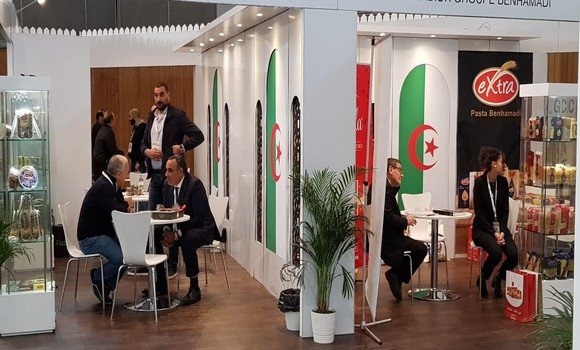By Riad Beladi
Algeria is a country with a diversified agricultural sector that plays a crucial role in the country’s economy. The country has a total agricultural land area of around 8.4 million hectares, with over 3 million hectares dedicated to cereal cultivation.
The main crops grown in Algeria include wheat, barley, corn, potatoes, and various fruits and vegetables. Livestock production is also an important part of the country’s agriculture industry, with sheep, goats, and cattle being the most commonly raised animals.
Despite the country’s abundant agricultural resources, Algeria has historically struggled with food security due to a reliance on imports to meet demand. However, the government has taken steps in recent years to increase domestic production and reduce reliance on foreign imports.
One of the key strategies for boosting food production in Algeria is through investments in irrigation systems and infrastructure. The government has also implemented policies to encourage farmers to adopt more modern agricultural practices and technologies, such as improved seed varieties and mechanized equipment.
In addition to these efforts, the Algerian government has also implemented policies aimed at reducing food waste and improving food distribution to ensure that all citizens have access to nutritious and affordable food.
Overall, while Algeria has faced significant challenges in achieving food security in the past, the country’s commitment to investing in its agricultural sector and implementing effective policies holds promise for a more sustainable and self-sufficient food system in the future.
Algeria is not known as a major food exporting country. In fact, the country is known for its food imports, particularly of wheat, sugar, and vegetable oil. Algeria has a limited agricultural sector due to its arid climate and lack of arable land. The country’s main crops include cereals, citrus fruits, dates, and olives. However, despite efforts to increase agricultural production, Algeria still relies heavily on food imports to meet the needs of its population.
In recent years, Algeria has been working to diversify its economy and reduce its reliance on oil and gas exports. One area of focus has been the development of the agri-food industry. The government has implemented policies to support agricultural production and processing, and there have been some efforts to increase food exports. However, progress has been slow and the country’s food exports remain limited.
Overall, while Algeria has some potential for food production and export, it faces significant challenges due to its arid climate and limited resources. The country’s focus on increasing agricultural production and developing the agri-food industry is a step in the right direction, but it will take time to see significant progress in this area.
Algeria has the potential to become a major player in the global food market, but there are several challenges that must be addressed to facilitate food exports. Some of the key areas that need attention include:
- Infrastructure: Algeria needs to invest in modern infrastructure such as roads, railways, ports, and airports to facilitate the transportation of goods.
- Technology: Modern technology such as cold storage facilities, packaging equipment, and food processing machinery can help to preserve food quality and extend shelf life, which is essential for export markets.
- Quality control: To ensure that exported food meets international standards, Algeria needs to invest in quality control measures such as testing laboratories, certification agencies, and inspection services.
- Market access: Algeria needs to work on building trade relationships with other countries to facilitate market access for its food exports. This includes negotiating trade agreements and reducing trade barriers.
- Marketing: Effective marketing strategies are essential for promoting Algerian food products in the global marketplace. This includes building brand recognition, participating in trade shows and exhibitions, and leveraging digital marketing channels.
Overall, by addressing these key areas, Algeria can overcome the challenges it faces and establish itself as a major player in the global food market.
If Algeria wants to increase its food exports, it needs to invest in advertising to promote its food products to potential buyers in other countries. Advertising can help create awareness of Algerian food products, build trust in their quality, and differentiate them from similar products in the market.
Here are some strategies that Algeria could use to advertise its food exports:
- Participate in international food exhibitions and trade fairs: These events provide a platform for food exporters to showcase their products to international buyers. By participating in these events, Algeria can attract potential buyers and promote its food products.
- Use social media and online platforms: Social media platforms such as Facebook, Twitter, and Instagram provide an opportunity for Algeria to showcase its food products to a global audience. It can use social media to share pictures and videos of its food products and highlight their unique features and quality.
- Collaborate with food bloggers and influencers: Algeria can partner with food bloggers and influencers to promote its food products. Food bloggers and influencers have a significant following on social media, and their endorsements can help raise awareness about Algerian food products.
- Develop promotional materials: Algeria can develop promotional materials such as brochures, flyers, and posters that highlight its food products. These materials can be distributed at international food exhibitions and trade fairs or sent to potential buyers.
- Engage with potential buyers: Algeria can reach out to potential buyers directly and provide them with information about its food products. This could be done through email campaigns, phone calls, or other forms of communication.
By investing in advertising and promotion, Algeria can increase the visibility of its food products in international markets and attract more buyers. This could help boost the country’s economy and create new opportunities for food producers and exporters.
Lack of international public relations can be detrimental to any business, including those in the food export industry. Public relations (PR) is the process of building relationships with various stakeholders, including customers, suppliers, media, and the general public. It involves managing the image of a company or product and communicating its values, goals, and benefits.
In the food export industry, PR plays a crucial role in attracting new customers, building brand recognition, and establishing trust. Algeria, for example, may have high-quality food products, but without proper PR efforts, it may struggle to compete with other countries that have established strong international relationships.
One way to improve Algeria’s food export PR is by engaging in marketing campaigns that highlight the country’s unique food offerings, such as dates, olives, and other Mediterranean-inspired products. By showcasing the quality and variety of Algerian food products, potential customers can gain a better understanding and appreciation of what Algeria has to offer.
Another way to improve PR efforts is by building relationships with international media outlets and food bloggers. Positive reviews and recommendations from trusted sources can help build credibility and increase exposure for Algerian food products.
In addition, engaging in trade shows and food exhibitions can provide a platform to showcase Algerian food products to potential buyers from around the world. These events can also serve as an opportunity to network and build relationships with other food industry professionals.
Overall, lack of international PR efforts can hinder the success of Algeria’s food export industry. By investing in marketing campaigns, building relationships with international media outlets, and participating in trade shows, Algeria can increase its visibility and attract new customers in the global food market.



